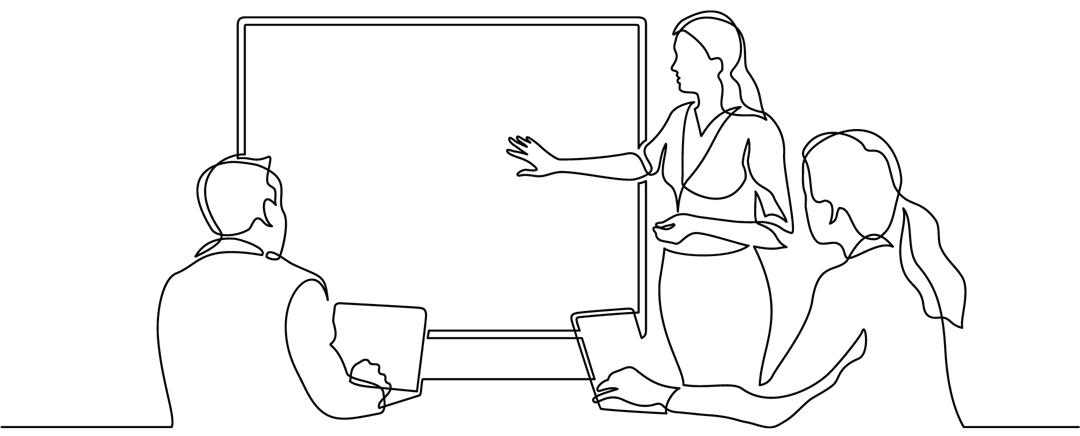
About Michelle Burgess
Working collaboratively with all levels of an organization,  Michelle is viewed as a true team member
Michelle is viewed as a true team member
as a Fractional Chief Marketing Officer (FCMO), even while only short-term. She engages with leadership teams to explore goals and develop strategies. She also mentors in-house marketing staff
to establish frameworks, guidelines, and launch processes, allowing them to manage marketing and initiatives in-house after the contract period.
Q&A with Michelle Burgess, Contracted FCMO
How is an FCMO different from an agency project manager?
Both roles are important to the success of any forward-driving marketing work, but here’s the difference:
PROJECT MANAGER:
Provides oversight, ensures timelines, provides updates to the client, and handles billing – all crucial aspects to making sure projects are successfully completed.
FCMO:
This role involves more collaboration and planning meetings; where needed, it can involve conducting input sessions with boards, leadership teams, and staff to be sure projects are in alignment with needs.
- Provides more strategic thinking and collaboration with an organization to peel back the layers to identify challenges and opportunities.
- Creatively and strategically orchestrates and oversees the execution, providing direction to complete this work.
What makes you a qualified FCMO?
In a word…experience.
- 18+ years marketing and consulting experience
- Small business owner who infuses a business mentality with proven creative acumen
- Proven track record of developing and implementing high-impact, on-target marketing campaigns for small businesses and non-profits across the country
- Accomplished “storyteller” bringing organizations’ history and success stories to life across multiple mediums
- Engages with staff, listening and learning through deep-dive planning sessions, ensuring clients feel seen and heard throughout the process. Clients are actively engaged to encourage insight, consensus…and even pushback.
- Able to infuse qualitative and quantitative insight to strengthen outcomes and deliver desired KPIs – on time and on budget
- Works with and mentors in-house marketing teams to bring marketing plans to life, making them self sustaining after the contract period
What type of work do you manage as an FCMO?
Organizations across the landscape have engaged my services to support their marketing goals – from multi-faceted, in-depth non-profit campaigns to product launches. Work has involved in-depth stakeholder research, development and production of websites, videos and collateral materials, and stakeholder listening sessions to elicit feedback used to form communications plans. No work is ever the same in this role; it is custom tailored to an organization’s needs and vision.
However…engagement involves a common (and comprehensive) approach to develop the most effective outcomes, including:
- Identifying the need and desired outcome
- Conducting an audit and assessment
- Gathering insight/conducting research
- Developing a marketing plan
- Budget planning
- Executing the plan
- Managing the workload
- Assess resources and partners
- Hiring or working with teams
- Providing updates to leadership
- Establishing systems thinking and processes
- Managing and reporting the KPIs
How does your FCMO cost structure work?
Costs depend on the identified work scope and are set up as an agreed-upon contract fee.
Clients do find FCMO compensation is more cost effective than hiring a full-time CMO. Fees are about 60% less than a staffed position. An FCMO’s expertise, coupled with planning, leadership and work executed, is a well spent investment.
Typically, contracts are about 12 months. I am selective with the number of deep engagement FCMO clients I take on—capped at three clients/year-allowing me to be more immersive, get involved with day-to-day work, and travel where needed.
This investment leaves client organizations on stronger footing—a clearer vision, new projects produced and launched, and new processes in place that can be carried out by in-house staff/less-complex contracted work.
What is the intersection of your marketing agency, Notavi Creative, with your work as an FCMO?
When a client requests that I work with identified staff/partners to execute the work:
I get to meet LOTS of talented partners and vendors in my work. I’ve had the pleasure of contracting some of them because of their great contributions. I’ve also mentored in-house staff and helped them grow in their role, as now they have new tools and resources. Together, we build a team with the best fit for the project, whether an entire campaign or collateral materials.
Working with Notavi Creative to execute the work:
I also have a built-in team at Notavi Creative to execute the work. As part of our business model, I have contracts with vetted and established senior-level copywriters, proofreaders, web designers and developers, graphic designers, social media content creators and admins, video editors and producers, and project managers to oversee the work. I’ve personally curated this team and am confident in their outputs, budget adherence, quality control, and timeliness of the work.
What’s your work style? Would you be a fit for our organization?
The best way to know if our visions and work styles align is to kick my tires and meet me!
Organizations seeking an FCMO recognize it’s an investment. They also know they are gaining a professional with the experience to take the lead in driving and completing a major initiative.
I have built my reputation by engaging with organizations to fully absorb their needs, as well as their culture. Through onboarding, I develop rapport with the team, engaging them in the shared vision and work. Open lines of communication throughout plan development ensures alignment, especially if original goals or tactics need to be reconsidered.
Booking preliminary in-person consultations
An initial in-person/one-day booked consultation can be an effective starting point – where the team can share their goals, their challenges, and their perceived opportunities. This engagement also allows me to learn, ask questions, and share preliminary thoughts, so together we can plan the working partnership.
This allows for some strategic time together to begin assessing the work, but also to determine if it’s a mutual fit.
